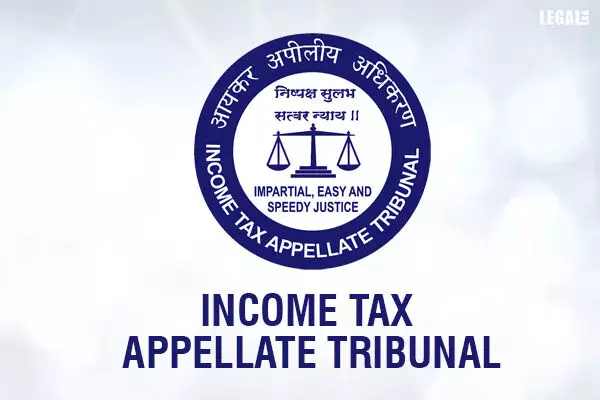- Home
- News
- Articles+
- Aerospace
- Artificial Intelligence
- Agriculture
- Alternate Dispute Resolution
- Arbitration & Mediation
- Banking and Finance
- Bankruptcy
- Book Review
- Bribery & Corruption
- Commercial Litigation
- Competition Law
- Conference Reports
- Consumer Products
- Contract
- Corporate Governance
- Corporate Law
- Covid-19
- Cryptocurrency
- Cybersecurity
- Data Protection
- Defence
- Digital Economy
- E-commerce
- Employment Law
- Energy and Natural Resources
- Entertainment and Sports Law
- Environmental Law
- Environmental, Social, and Governance
- Foreign Direct Investment
- Food and Beverage
- Gaming
- Health Care
- IBC Diaries
- In Focus
- Inclusion & Diversity
- Insurance Law
- Intellectual Property
- International Law
- IP & Tech Era
- Know the Law
- Labour Laws
- Law & Policy and Regulation
- Litigation
- Litigation Funding
- Manufacturing
- Mergers & Acquisitions
- NFTs
- Privacy
- Private Equity
- Project Finance
- Real Estate
- Risk and Compliance
- Student Corner
- Take On Board
- Tax
- Technology Media and Telecom
- Tributes
- Viewpoint
- Zoom In
- Law Firms
- In-House
- Rankings
- E-Magazine
- Legal Era TV
- Events
- Middle East
- Africa
- News
- Articles
- Aerospace
- Artificial Intelligence
- Agriculture
- Alternate Dispute Resolution
- Arbitration & Mediation
- Banking and Finance
- Bankruptcy
- Book Review
- Bribery & Corruption
- Commercial Litigation
- Competition Law
- Conference Reports
- Consumer Products
- Contract
- Corporate Governance
- Corporate Law
- Covid-19
- Cryptocurrency
- Cybersecurity
- Data Protection
- Defence
- Digital Economy
- E-commerce
- Employment Law
- Energy and Natural Resources
- Entertainment and Sports Law
- Environmental Law
- Environmental, Social, and Governance
- Foreign Direct Investment
- Food and Beverage
- Gaming
- Health Care
- IBC Diaries
- In Focus
- Inclusion & Diversity
- Insurance Law
- Intellectual Property
- International Law
- IP & Tech Era
- Know the Law
- Labour Laws
- Law & Policy and Regulation
- Litigation
- Litigation Funding
- Manufacturing
- Mergers & Acquisitions
- NFTs
- Privacy
- Private Equity
- Project Finance
- Real Estate
- Risk and Compliance
- Student Corner
- Take On Board
- Tax
- Technology Media and Telecom
- Tributes
- Viewpoint
- Zoom In
- Law Firms
- In-House
- Rankings
- E-Magazine
- Legal Era TV
- Events
- Middle East
- Africa
ITAT Rejects IT Department’s Assertion For Lack Of Proof Of Cheque Donation Converted Into Cash

ITAT Rejects IT Department’s Assertion For Lack Of Proof Of Cheque Donation Converted Into Cash
The appellant produced receipts and recognition certificates for the institutions, to back his case
The Mumbai bench of the Income Tax Appellate Tribunal (ITAT) has allowed a deduction to the assessee on not finding evidence that the cheque paid for the donation was plowed back by cash.
The Coram of Sunil Kumar Singh (Judicial Member) and B.R. Baskaran (Accountant Member) noted that the assessing officer (AO) did not produce any proof to disprove the evidence provided by the assessee on the donations made to the institutions or to show that the cheque paid by the assessee was turned into cash.
The bench reiterated the settled proposition that the subsequent withdrawal of recognition granted under Section 35(1)(ii) of the Income Tax Act, 1961, would not be barred for granting deductions for the donations paid earlier.
The appellant-assessee exports dyes, dye intermediates, chemicals and allied industrial goods.
For the Assessment Year 2015-2016, the assessee donated Rs.55,00,000 to Matrivani Institute of Experimental Research & Education, Kolkata, towards scientific research.
The assessee claimed weightage deduction under Section 35(1)(ii) at the rate of 175 percent of the donation amount of Rs.96,25,000. In the AY 2014–2015, the assessee donated Rs.75,00,000 to the School of Human Genetics and Population Health, Kolkata, for scientific research and claimed deduction.
The IT Investigation Wing noted that both organizations provided bogus donation certificates through various brokers in place of receiving commissions.
The AO held that the donations paid by the assessee in the AYs were bogus and did not allow the deductions under Section 35(1)(ii). The Commissioner of Income Tax (Appeals) confirmed the disallowance.
Aggrieved by the situation, the assessee approached the ITAT.
The assessee contended that it donated to the organizations through the banking channel, producing receipts and recognition certificates for the institutions and claimed deductions for both years. The AO did not find fault with the assessee’s documents.
Contrary to that, the IT department submitted that the Investigation Wing conducted survey operations of both institutions and noted their modus operandi in issuing bogus donations in place of receiving commissions. Since they were involved in malpractices, the CIT(A) was justified in confirming the disallowance claimed by the assessee.
However, the tribunal allowed the assessee’s claim and set aside the orders passed by CIT(A). It directed the AO to allow the deduction claimed by the assessee under Section 35(1)(ii) of the IT Act.



